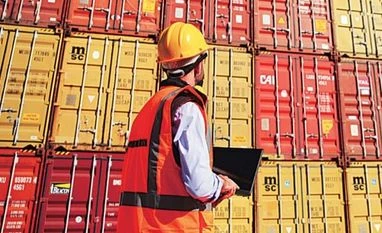The government is analysing the sectoral impact of the ongoing Russia-Ukraine conflict and is holding consultations with the industry bodies to understand the pain points, a senior government official said.
“We are analysing the sectors that will be impacted. We have already held a couple of meetings on that. The conflict will have a negative impact on the economy. On the other hand, it will create some opportunities for industry to substitute finished goods earlier supplied by Russia and Ukraine. We have had one round of discussion with the industry to assess the impact. We have asked them to analyse the data and get back to us,” the official told Business Standard.
On allowing rupee-ruble trade, the government official said it is just a matter of time. “It was facilitated during the Iran conflict also. It is a logical thing to do,” he said.
An industry official said that as far as manufactured goods are concerned, Indian exporters can have an advantage over the supplies from Russia to European nations. In 2020, Russia supplied more than $500 billion worth of goods to Europe.
“We are looking at what Russia exports to Europe and can be supplied by us (India). These include items such as petroleum products, iron and steel, engineering, plastic, rubber, paper products, as well as organic and inorganic chemicals, where we can take advantage,” the official said.
“We have started getting orders of iron and steel and petroleum products from Europe. Reconstruction of Ukraine will also take time, and India can take advantage of that. (Going ahead), we expect more orders from Europe,” the official cited above said.
Europe is also the biggest export market for India, with a share of a fifth of total exports from India. During the first three quarters of the current fiscal, India exported goods worth $60.3 billion to Europe.
Another representative said the industry has already informed the government about their key concerns pertaining to the risk of higher inflation as well as the ongoing conflict’s impact on exports.
“The first concern is regarding the impact of the rising crude oil price on inflation. The government has made it clear that the economy is resilient at the moment and that the Reserve Bank of India is well aware of the matter and they will take care of it. Another concern flagged to the government was how exports are getting affected. Government officials said a call will be taken as the situation evolves,” the official said, requesting anonymity.
The ongoing war between the two countries is affecting exports to Ukraine and Russia, as global shipping lines have suspended cargo shipments to and from Russia. Ports are being shut down because of rising freight rates. Exporters fear their payments getting stuck, with western nations deciding to block many Russian banks from accessing Society for Worldwide Interbank Financial Telecommunication (SWIFT).
The government is channelising its network of diplomatic missions abroad to enable grain exporters to ship Indian wheat and corn to the world as the supplies from the two countries are expected to remain disrupted for some time. Russia is the world’s largest wheat exporter and also tops the list of producers after China and India, while Ukraine is among the top five wheat exporters worldwide.
Similarly, India is looking towards developing alternate markets such as Iraq, Saudi Arabia, US, Japan, and Tunisia to ensure that the drop in tea export volumes is made good by exports to these countries.
Another industry official said Indian companies based out of Hungary, Poland, Romania, and Slovakia have supported the evacuation exercise being undertaken by India.
Companies, such as Tata Consulting Services, Wipro, ArcelorMittal, Sun Pharmaceutical, Apollo Tyres, CK Birla Group, Dr Reddy's Laboratories, Tech Mahindra, L&T Infotech, and Berger Paints that have presence in East Europe have provided different logistics support towards facilitating Operation Ganga, the humanitarian assistance being provided by India amid Russia-Ukraine conflict.
Unlock 30+ premium stories daily hand-picked by our editors, across devices on browser and app.
Pick your 5 favourite companies, get a daily email with all news updates on them.
Full access to our intuitive epaper - clip, save, share articles from any device; newspaper archives from 2006.
Preferential invites to Business Standard events.
Curated newsletters on markets, personal finance, policy & politics, start-ups, technology, and more.
)